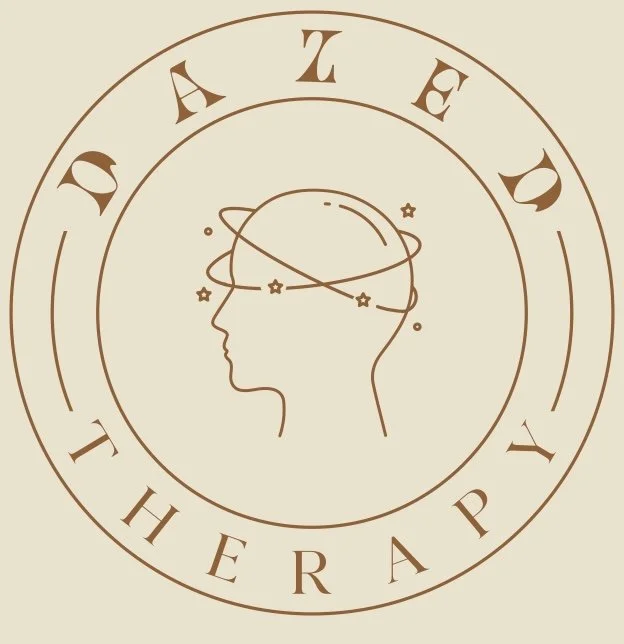
Relationship Therapy
It’s time to rebuild
What is EMDR?
Eye Movement Desensitization and Reprocessing, or EMDR, is a straightforward yet highly effective therapy that utilizes bilateral stimulation, such as tapping, auditory tones, and/or eye movements, to expedite the brain's processing of distressing memories so that you can heal. Bilateral stimulation happens naturally during dream sleep. It encourages the collaboration of two brain hemispheres to reintegrate the memory. Some individuals may experience relief or positive outcomes after just a few sessions. EMDR is an effective tool in mitigating symptoms associated with trauma, regardless of whether the traumatic event occurred years ago or very recently. EMDR can yield desired results with minimal verbal communication, without the use of medication, and unlike other forms of therapy, it requires no "homework" in between sessions.

Understanding Our Brains Empowers Us to Influence Our Relationship(s).
EMDR can help to address underlying emotional triggers and issues that you experience when interacting with, or even thinking about your partner(s).
The emotional part of our brains typically reacts faster than the cognitive part of our brains. The initial response from the emotional brain takes precedence and influences the outcome of rational thought processes. Excessive emotion can hinder blood flow to the pre-frontal cortex, leading to impaired rational thinking. EMDR aims to modify emotional responses, facilitating more conducive emotional states for fostering loving and peaceful relationships.
Utilizing EMDR for Relational Growth
EMDR can be utilized to both strengthen and heal your relationship in many ways, including:
Adapting your emotional responses to more constructive ones
Processing infidelity, betrayal, and other types of relational traumas
Strengthening your commitment to love each other more profoundly
Finding means to reconnect with your partner in new ways
Helping you to feel more safe and secure in your partnership
Assist you in strengthening or reestablishing an emotional connection
Fortifying communication strategies
Empowering each partner to give and receive love freely
Enhancing your bond and creating a more secure attachment
We have witnessed firsthand how EMDR has positively impacted our clients’ relationships. Many relationship issues can stem from past traumas or unresolved emotional experiences, and EMDR offers a method to process these issues effectively. EMDR can help couples improve communication by reducing emotional reactivity and facilitating a deeper understanding of each other's perspectives. EMDR can equip couples with coping skills and emotional resilience to navigate future conflicts or stressors more effectively. Couples who may have felt hopeless or stuck in their relationship dynamics may find renewed hope and optimism through the process of EMDR therapy, which inspires our passion for facilitating this transformation.
We’re Passionate About EMDR Couples Therapy
Frequently asked questions
-
We are in-network provider with Cigna and the Veterans Community Care Network. Copays and rates are set by the insurance companies.
-
Dazed Therapy operates based on an anti-oppressive sliding scale fee structure that is built around our standard rate of $200 per session. Since everyone’s financial situation is different, we provide a limited number of slots at several different fee tiers. We invite you to review our sliding scale fee structure guide here.
If you would like to use your out-of-network benefits we can provide you with the documentation that you need to seek reimbursement from your insurance company if you have out-of-network benefits.
-
The potential benefits of EMDR include:
Reduction in distress
Improved self-esteem
Alleviation of PTSD symptoms
Reduced anxiety and depression
Improved physical health
Improved focus and concentration
Improved sleep quality
EMDR aids in guiding the brain to reintegrate the memory and relocate it to a more suitable area within the brain. It's the client's own brain that undertakes this process of memory reintegration and subsequent healing.
-
Reprocessing a memory may bring up associated memories. The is normal and those memories will also be reprocessed.
During the EMDR, the client may experience physical sensations and retrieve images, emotions and sounds associated with the memory.
Reprocessing of the memory normally continues after the end of the formal therapy session.
Other memories, flashbacks, feelings and sensations may occur. The client may have dreams associated with the memory. Frequently the brain is able to process these additional memories without help, but arrangements for assistance will be made in a timely manner if the client is unable to cope.
-
We do not offer in-person sessions at this time. I exclusively offer virtual sessions via a HIPAA-compliant video conference platform.
-
The difference between an EMDR (Eye Movement Desensitization and Reprocessing) trained clinician and an EMDR-certified clinician lies in their level of expertise and experience with the EMDR therapy approach:
EMDR Trained Clinician:
An EMDR-trained clinician has completed the basic training in EMDR therapy. This training typically includes a comprehensive educational program covering the theory, principles, and techniques of EMDR therapy. After completing the training, clinicians are considered "trained" in EMDR and can integrate EMDR techniques into their practice. However, they may still be relatively new to using EMDR in clinical settings and may need further experience and supervision to become proficient.
EMDR-Certified Clinician:
An EMDR-certified clinician has completed the basic training in EMDR therapy as well as additional requirements to achieve certification. These additional requirements typically include completing a certain number of supervised sessions using EMDR therapy with clients, receiving ongoing consultation and supervision from experienced EMDR therapists, and demonstrating competence in applying EMDR techniques effectively and ethically. Certification indicates a higher level of proficiency and experience in using EMDR therapy, and clinicians who are certified may be considered experts in the field.
-
Scientific research has established EMDR as effective for the treatment of post-traumatic stress, phobias, panic attacks, anxiety disorders, stress, sexual and physical abuse, disturbing memories, complicated grief, and addictions.
-
EMDR has been widely researched and has garnered empirical support for its effectiveness in treating PTSD and trauma-related symptoms. It is considered a recommended treatment for PTSD by organizations such as the American Psychological Association (APA) and the World Health Organization (WHO).
-
We invite you to review the EMDR therapy Informed consent form here.


